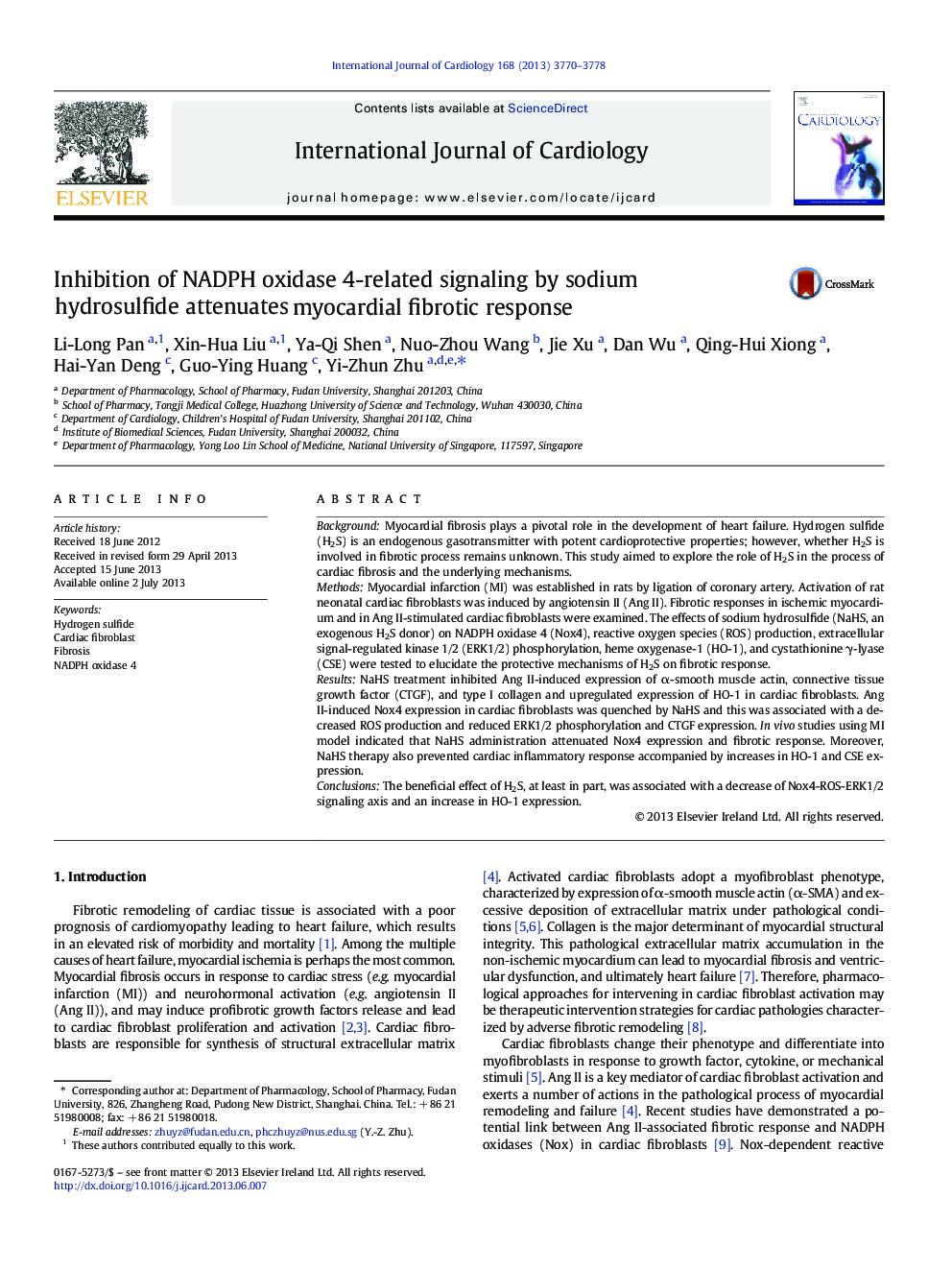| کد مقاله | کد نشریه | سال انتشار | مقاله انگلیسی | نسخه تمام متن |
|---|---|---|---|---|
| 5973900 | 1576208 | 2013 | 9 صفحه PDF | دانلود رایگان |

BackgroundMyocardial fibrosis plays a pivotal role in the development of heart failure. Hydrogen sulfide (H2S) is an endogenous gasotransmitter with potent cardioprotective properties; however, whether H2S is involved in fibrotic process remains unknown. This study aimed to explore the role of H2S in the process of cardiac fibrosis and the underlying mechanisms.MethodsMyocardial infarction (MI) was established in rats by ligation of coronary artery. Activation of rat neonatal cardiac fibroblasts was induced by angiotensin II (Ang II). Fibrotic responses in ischemic myocardium and in Ang II-stimulated cardiac fibroblasts were examined. The effects of sodium hydrosulfide (NaHS, an exogenous H2S donor) on NADPH oxidase 4 (Nox4), reactive oxygen species (ROS) production, extracellular signal-regulated kinase 1/2 (ERK1/2) phosphorylation, heme oxygenase-1 (HO-1), and cystathionine γ-lyase (CSE) were tested to elucidate the protective mechanisms of H2S on fibrotic response.ResultsNaHS treatment inhibited Ang II-induced expression of α-smooth muscle actin, connective tissue growth factor (CTGF), and type I collagen and upregulated expression of HO-1 in cardiac fibroblasts. Ang II-induced Nox4 expression in cardiac fibroblasts was quenched by NaHS and this was associated with a decreased ROS production and reduced ERK1/2 phosphorylation and CTGF expression. In vivo studies using MI model indicated that NaHS administration attenuated Nox4 expression and fibrotic response. Moreover, NaHS therapy also prevented cardiac inflammatory response accompanied by increases in HO-1 and CSE expression.ConclusionsThe beneficial effect of H2S, at least in part, was associated with a decrease of Nox4-ROS-ERK1/2 signaling axis and an increase in HO-1 expression.
Journal: International Journal of Cardiology - Volume 168, Issue 4, 9 October 2013, Pages 3770-3778